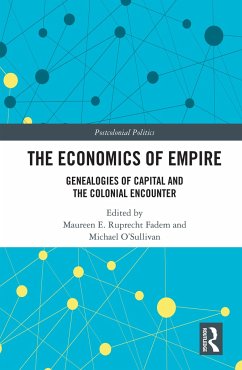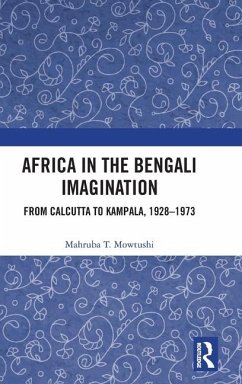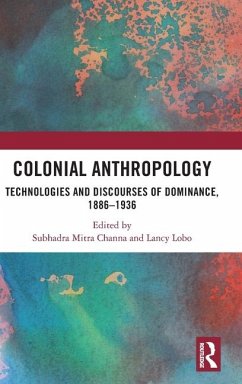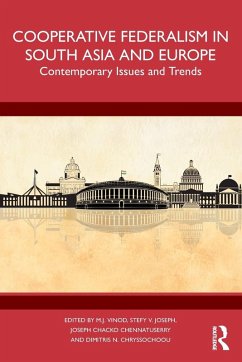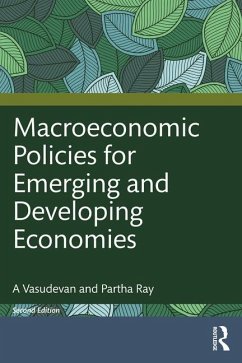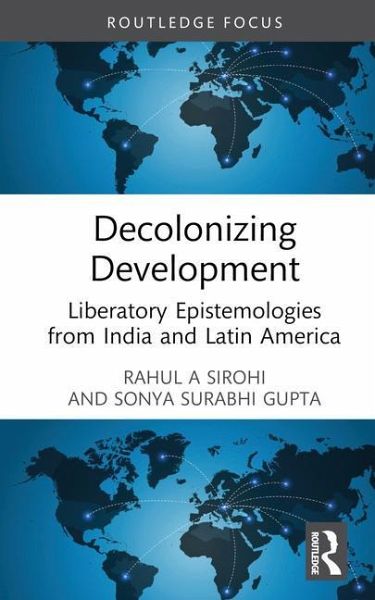
Decolonizing Development
Liberatory Epistemologies from India and Latin America

PAYBACK Punkte
30 °P sammeln!
This book turns to the intellectual discourses that have emerged from India and Latin America, two outposts of the Global South, on the themes of imperialism, sovereignty, development, and socio-economic, racial and caste inequalities.It recovers the elided reflective traditions of thinkers, writers and activists from these peripheries and highlights the distinctive ideas, alliances and parallelisms in their works, as well as the manner in which they articulate liberatory paradigms which continue to have contemporary relevance. The book maps the innovative epistemic engagements of thinkers fro...
This book turns to the intellectual discourses that have emerged from India and Latin America, two outposts of the Global South, on the themes of imperialism, sovereignty, development, and socio-economic, racial and caste inequalities.
It recovers the elided reflective traditions of thinkers, writers and activists from these peripheries and highlights the distinctive ideas, alliances and parallelisms in their works, as well as the manner in which they articulate liberatory paradigms which continue to have contemporary relevance. The book maps the innovative epistemic engagements of thinkers from India and Latin America, highlighting the manner in which they have disrupted and challenged the hierarchies of global knowledge production. It argues that political, spatial and historical distinctions notwithstanding, the experiences of peripheralization, their common traditions of resistance to oppression and their deeply entangled histories have forged a shared intellectualidentity and a rich alternative set of emancipatory epistemologies grounded in the realities and histories of Southern nations. The book recovers this body of work as mass movements the world over seek civilizational alternatives to capitalist modernity.
The book will be of interest to students and researchers of development studies, history, political science, sociology, political economy, South Asian studies, Latin American studies and Global South studies.
It recovers the elided reflective traditions of thinkers, writers and activists from these peripheries and highlights the distinctive ideas, alliances and parallelisms in their works, as well as the manner in which they articulate liberatory paradigms which continue to have contemporary relevance. The book maps the innovative epistemic engagements of thinkers from India and Latin America, highlighting the manner in which they have disrupted and challenged the hierarchies of global knowledge production. It argues that political, spatial and historical distinctions notwithstanding, the experiences of peripheralization, their common traditions of resistance to oppression and their deeply entangled histories have forged a shared intellectualidentity and a rich alternative set of emancipatory epistemologies grounded in the realities and histories of Southern nations. The book recovers this body of work as mass movements the world over seek civilizational alternatives to capitalist modernity.
The book will be of interest to students and researchers of development studies, history, political science, sociology, political economy, South Asian studies, Latin American studies and Global South studies.




